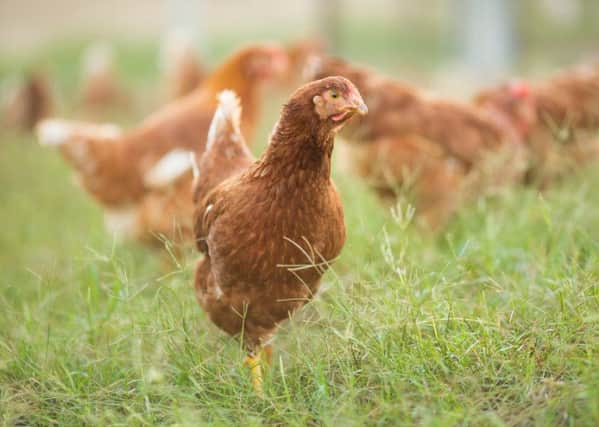Free-range eggs become '˜barn eggs' following bird flu


The birds have been kept in barns since December following government orders put in place to stop the spread of the disease.
However, EU regulations state if birds have been kept indoors for more than 12 weeks their eggs cannot be classed as free range.
Advertisement
Hide AdAdvertisement
Hide AdTo qualify as free-range, there must be unlimited daytime access to ‘runs’ with vegetation and at least 4 sq m of outside space per hen.
Usually there are four different types of eggs on sale in the UK - free-range, organic, barn-reared, and caged.
Although there is no risk to consumers, and the relabelled eggs will still taste, look and cost the same, bird flu can wipe out entire flocks - hence the ‘curfew’ on the poultry.
Existing free-range egg cartons have been stickered with the advice ‘Laid by hens temporarily housed in barns for their welfare’.
Advertisement
Hide AdAdvertisement
Hide Ad“The need to change labelling of free-range egg packs after 12 weeks is an EU requirement,” Mark Williams of the British Egg Industry Council told the BBC.
“However, these are all still free-range hens, but some are temporarily housed to protect them from bird flu.”